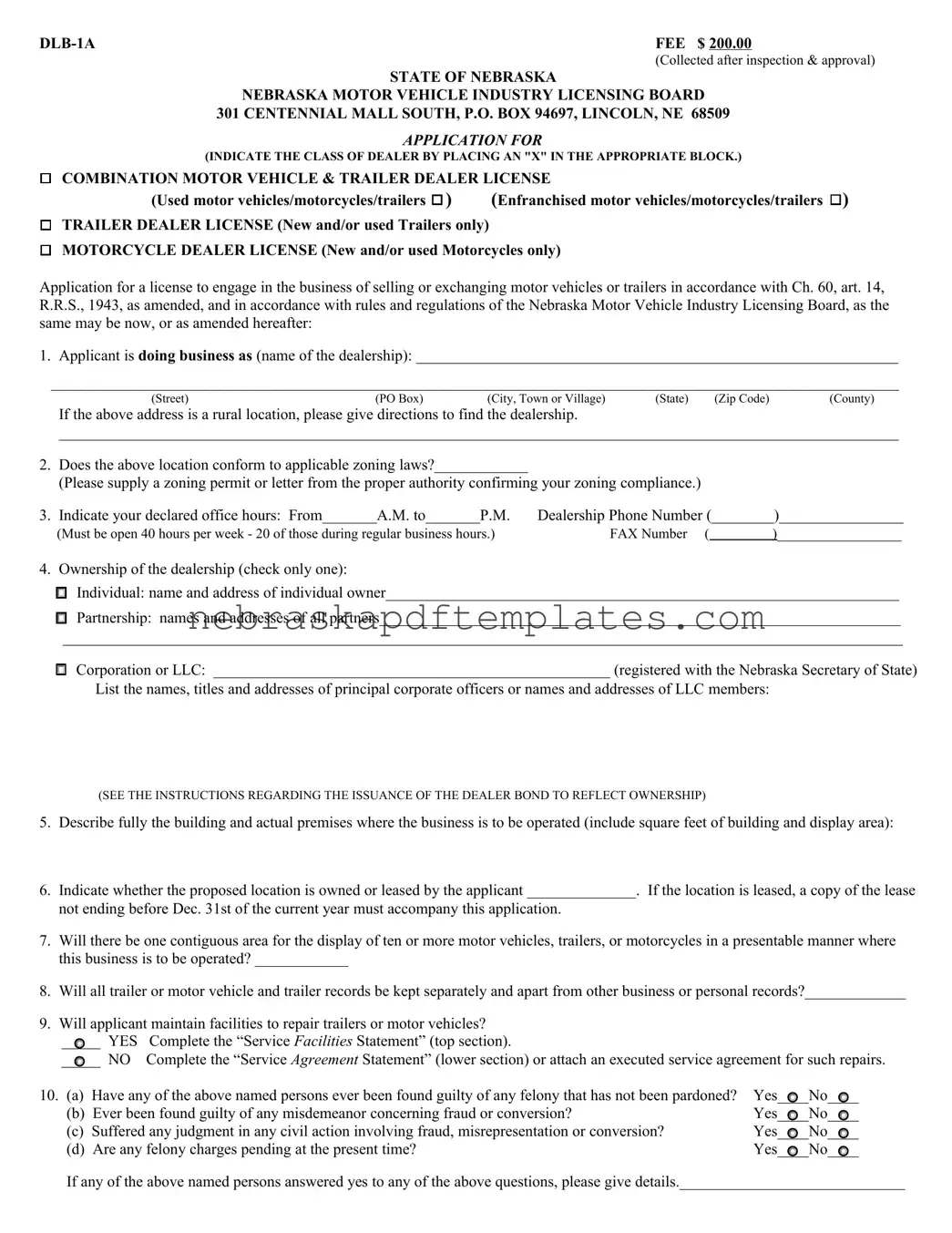- Misconception 1: The DLB-1A form is only for new dealerships.
This form is applicable for both new and used motor vehicle and trailer dealerships. Whether you are selling new or used vehicles, you must complete the DLB-1A form.
- Misconception 2: You must pay the $200 fee upfront.
Many believe that the fee must be paid before submitting the application. In reality, the fee is collected only after your application has been inspected and approved.
- Misconception 3: Zoning compliance is not necessary.
Some applicants think zoning compliance is optional. However, you must provide proof of zoning compliance, like a permit or letter from the appropriate authority, to ensure your dealership location meets local regulations.
- Misconception 4: The dealership must be open 24/7.
It is a common belief that dealerships need to operate around the clock. In fact, the dealership must be open for at least 40 hours a week, with 20 of those hours during regular business hours.
- Misconception 5: All business records can be kept together.
Some applicants think they can mix their dealership records with personal or other business records. The form requires that all vehicle and trailer records be kept separately to maintain clear and organized documentation.
- Misconception 6: You can skip the service facilities statement.
If you plan to maintain facilities for repairs, you must complete the “Service Facilities Statement.” If not, you need to provide a service agreement, making this step essential regardless of your situation.
- Misconception 7: Previous criminal charges disqualify you automatically.
While having a criminal record may raise concerns, it does not automatically disqualify you. The application includes questions about past convictions, but each case is evaluated individually.
- Misconception 8: You don’t need to list all owners or partners.
Applicants often think they can omit certain owners or partners. However, the form requires full disclosure of all individuals involved in the dealership, ensuring transparency in ownership.
- Misconception 9: You can submit the application without supporting documents.
Many believe that submitting the application alone is sufficient. In reality, you must include various supporting documents, such as franchise agreements, leases, and proof of insurance, depending on your circumstances.
- Misconception 10: You can submit the application without a notary.
Some applicants think notarization is not necessary. However, the DLB-1A form requires signatures to be notarized to validate the application and affirm its contents are true.

